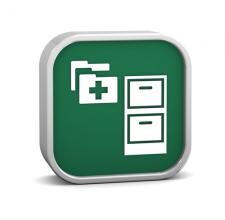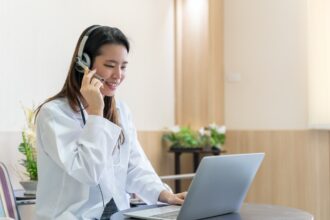 Our collaboration with Global Genes and Sharon Moalem, MD, PhD at H@cking Medicine at the Massachusetts Institute of Technology (MIT) was an unqualified success.
Our collaboration with Global Genes and Sharon Moalem, MD, PhD at H@cking Medicine at the Massachusetts Institute of Technology (MIT) was an unqualified success.
 Our collaboration with Global Genes and Sharon Moalem, MD, PhD at H@cking Medicine at the Massachusetts Institute of Technology (MIT) was an unqualified success. The goal of the MIT hackathon’s rare disease track was to develop a tool that would help speed diagnosis of rare diseases. We asked a team of entrepreneurs, software engineers, healthcare professionals, and designers to take on this challenge and they made great strides in just one weekend. The facial recognition software team won top honors in the rare disease track by developing enhancements for Recognyz, a phone-based app created by Dr. Moalem that uses facial metrics to help diagnose rare diseases.
Our collaboration with Global Genes and Sharon Moalem, MD, PhD at H@cking Medicine at the Massachusetts Institute of Technology (MIT) was an unqualified success. The goal of the MIT hackathon’s rare disease track was to develop a tool that would help speed diagnosis of rare diseases. We asked a team of entrepreneurs, software engineers, healthcare professionals, and designers to take on this challenge and they made great strides in just one weekend. The facial recognition software team won top honors in the rare disease track by developing enhancements for Recognyz, a phone-based app created by Dr. Moalem that uses facial metrics to help diagnose rare diseases.
There is still more work to be done. But we are one step closer to having this free tool widely available—and one step closer to solving the challenge of rare disease diagnosis. There was so much excitement around the hackathon—and with good reason. We were watching a process that may change the future, not just for rare disease, but for healthcare in general. It’s a new approach to solving today’s most challenging problems.
It’s Open Source
The biggest differentiator for Recognyz is that the tool is free and the venture is not-for-profit. It is also open-source, which means that the whole community will be coming together in a collaborative and transparent way to help make the tool better. That means the tool can evolve and improve at an extremely rapid pace.
It Adds to Our Knowledge, but Keeps Data Private
The “clinical selfies” created by Recognyz will tremendously add to our knowledge of rare diseases, but only the data is retained, not the photos themselves. This data can be used to further our understanding and improve diagnosis of conditions that have been identified – as well as those that have not yet been studied or named.
It Has Potential Even Beyond Rare Diseases
It was interesting to observe how much commonality there was between the rare disease and global tracks at the hackathon. In both cases, the focus was on using technology to take the burden off specialists, allowing them to focus on more complex problems. Putting technology in the hands of generalists and people who have less disease-specific training can help take the burden off a system that will be asked to adjust to an influx of new patients. This is as important for disease populations that number in the millions as it is for rare populations that number a few thousand. Once again, we are finding that research into rare disease needs has pay offs that go far beyond rare patients.
Dr. Sharon Moalem, the New York Times bestselling author of Inheritance: How Our Genes Change Our Lives—and Our Lives Change Our Genes, sums it all up in one phrase: “The rare informs the common.”
(rare diseases / shutterstock)









